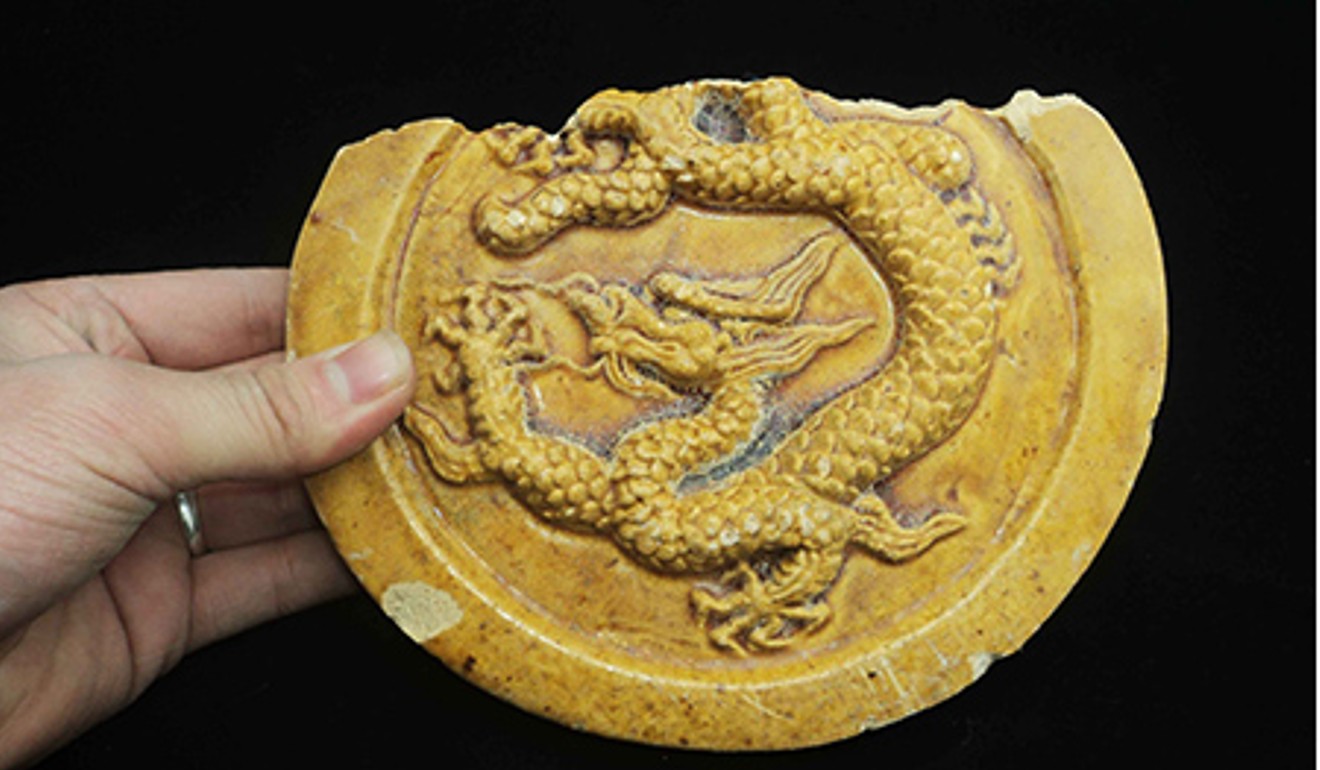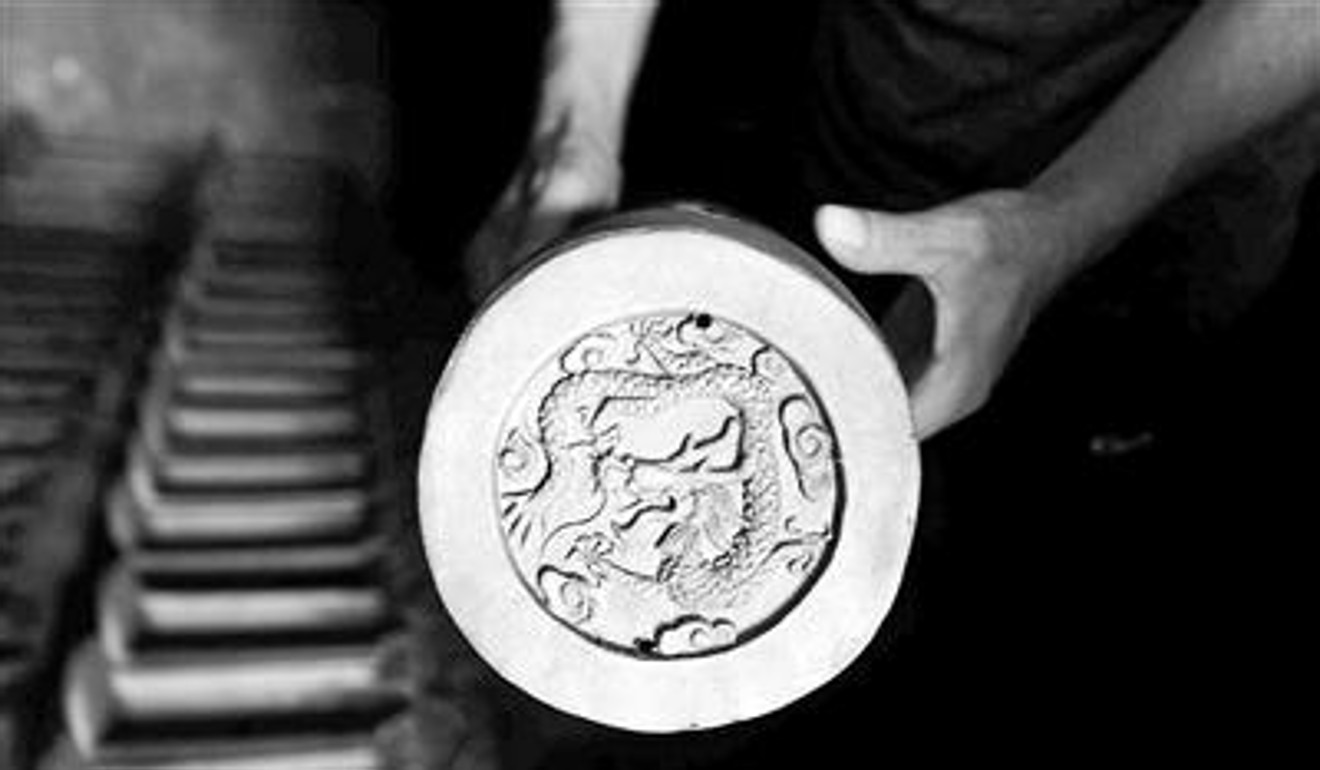
Beijing’s pollution clean-up threatens age-old craft fit for royalty
Roof tile factories are being shut down because they use coal-fired kilns – which artisans say are essential to the process
Beijing’s campaign to root out polluting factories is threatening an age-old industry that used to make bright yellow glazed tiles for royalty.
Most of the workshops that make the coloured tiles – known as liuliwa – have been ordered to shut down because their traditional process uses coal-fired kilns that do not meet environmental standards, Beijing Youth Daily reported.
The Mongolian rulers of the Yuan dynasty (1271 to 1368) set up the first of the workshops in Beijing’s western Mentougou district and it became a centre for making the tiles, the report said. Now there are none left there, and few survive elsewhere in the city.
But for hundreds of years, craftsmen in the district produced roof tiles that could only be used on imperial buildings or the mansions of aristocracy or officials.
They were glazed in yellow, green, blue and black, depending on who they were for – the yellow tiles with dragons could only be used for royalty.

The tiles can be seen on the roofs of temples and royal residences in Beijing including the Forbidden City and the Summer Palace.
Now, many of the workshops that produced them for so long are standing idle, their equipment abandoned and half-finished tiles left to gather dust, according to the report.
The authorities have vowed to clean up the capital’s notoriously polluted air, which has been a source of growing discontent in recent years.
Coal-fired plants and heating units have been shut down as the government tries to meet politically important air quality targets this year.
In March, state news agency Xinhua announced that Beijing’s last coal-fired power plant had been shut down, as it tries to meet ambitious clean energy targets and replaces coal with natural gas.
The government also unveiled plans last year to set up a no-coal zone in neighbouring cities, where factories and households would be banned from burning coal from November this year.
But the clean energy push is bad news for the old tile makers, whose factories have been closing down since April – prompting concerns that the industry won’t survive the transition.

The factory where Jiang Jianguo works is one of the casualties. The craftsman told the newspaper that the tiles had been made in the same way since the Qing dynasty (1644 to 1912) and coal-fired kilns were essential to the process.
“When we use coal, the kiln gets gradually hotter and the temperature is more stable,” Jiang was quoted as saying. “If we can’t control the heat properly, everything in the kiln will be destroyed.”
The workshop made tiles that were used to repair buildings in the Forbidden City, the imperial palace in the centre of Beijing.
Its owner, Sun Hongli, said he suggested a natural gas-fired facility be built that could also provide stable heat – at a cost of about 2 million yuan (HK$2.35 million) – but he had yet to get approval from the local environmental protection bureau.

